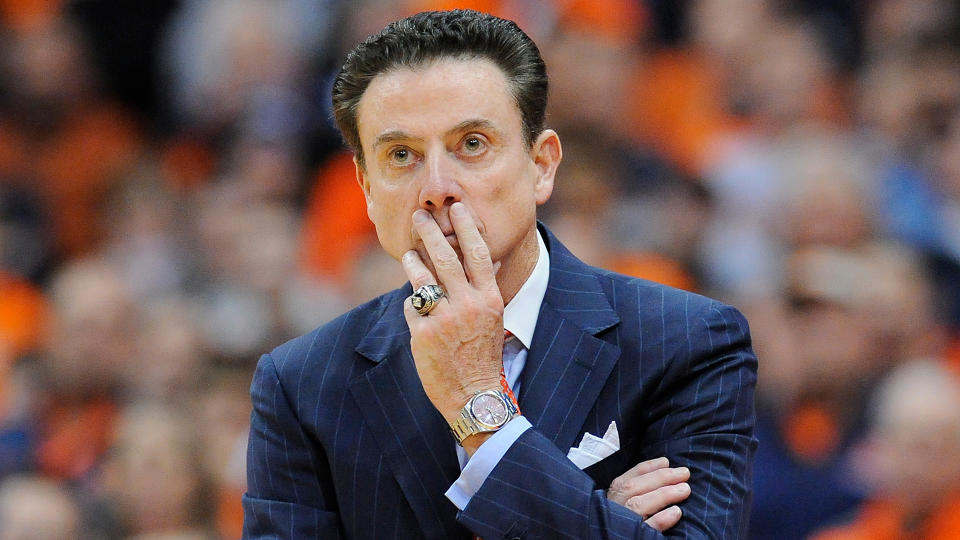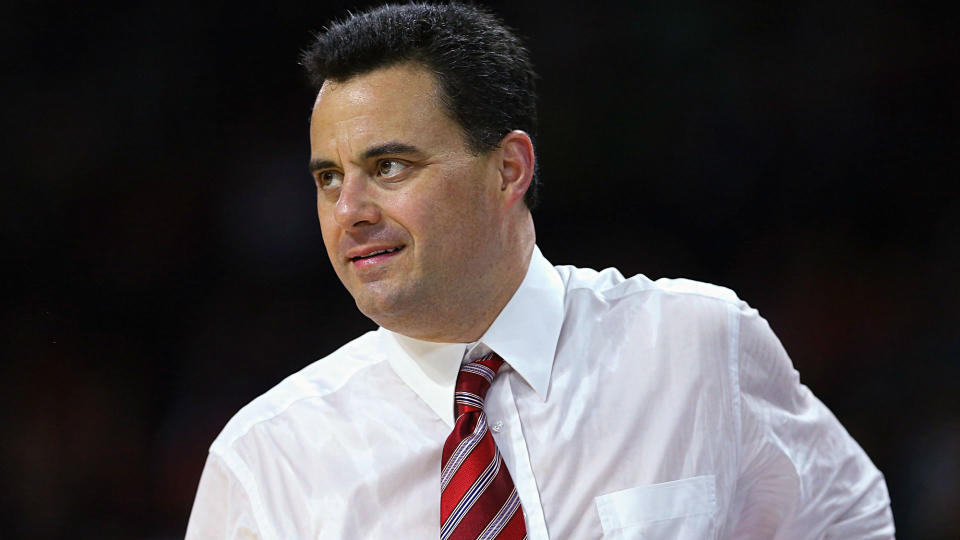How college basketball's massive scandal will completely change coaching market
With the shock waves from the college basketball corruption scandal still reverberating through the sport, a lot of people have started thinking ahead to how bad it is going to be.
Quite bad, is the most frequent educated guess. If federal investigators are able to leverage full cooperation out of the 10 men who have been charged with crimes, and they start naming names of others involved in payola scams that break laws or violate NCAA rules, the ripple effect could be devastating.
“I think when all is said and done there is going to be 100-plus coaches involved,” said one college coach.
If that level of complicity in college basketball’s underground economy becomes public, the firings could come in bulk. The job turnover could be staggering. And the criteria for filling those jobs could change radically.
Résumés everywhere will be sent to the shredder and rewritten. If the sport is forced to come clean, coaches billing themselves as ace recruiters with ties to AAU programs and shoe companies will face a tough sell. Because that’s exactly what has led college basketball into the predicament it currently occupies.
“You’re going to have to sell the other stuff – never been in trouble, academic success,” said one industry insider who has worked for years within the college basketball hiring process. “Those things have always been included, but they’ll be more important now.”

For roughly 25 years, the hiring dynamic has shifted to include more and more people connected to talent pipelines, via non-scholastic basketball and shoe contracts. The nostalgic days of teaching fundamentals at Howard Garfinkel’s Five-Star camp as a means to get a coaching job were being phased out; ties to AAU powerhouses were the new coin of the realm.
Take, for example, Emanuel “Book” Richardson, the Arizona assistant coach who was among those arrested on federal corruption charges. Richardson got his entrée into high-major college basketball coaching thanks largely to his ties to a major AAU outfit.
When Sean Miller hired him at Nike-funded Xavier in 2007, Richardson was director of basketball for the Nike-funded New York Gauchos. With the Gauchos he was, according to the New York Daily News, the “point man” for college coaches recruiting future Connecticut star Kemba Walker and other Gauchos standouts. According to the Daily News, this was Richardson’s self-described best asset for the Xavier job: “I bring them someone that can get players.” After two years at Xavier, Richardson then upgraded alongside with Miller to Nike-funded Arizona.
Then there is Louisville assistant Kenny Johnson, currently trying to ride out of the maelstrom that has enveloped that program. It cost head coach Rick Pitino his job, and we could know as soon as Wednesday how many assistants are sent overboard with him. Johnson was Louisville’s ace recruiter, and before that he was Indiana’s ace recruiter, where he went after just one season at mid-major Towson. Before that, most importantly to his career path, Johnson was vice president and assistant director of basketball operations for the AAU organization Team Takeover, in the Washington, D.C., area.
When the job market opens up again in the spring – unless this scandal forces it to open sooner – the skill sets that previously made Richardson and Johnson so valuable could make athletic directors break into a cold sweat. It could create a throwback job market that benefits X-and-O guys who are outside the current high-level college game – coaches who haven’t spent years immersed in the current recruiting culture.
“It could be that guys who have honed their craft get a chance that right now is going to fixers or hucksters who are tied to shoe companies and prospects,” said one source who specializes in coach representation. “Enough people are sufficiently scared to tighten up some of this stuff.”
Of course, finding the pure coaches in this swamp could be complicated. As has often been noted, the sort of deals that led to multiple arrests has been an open secret in the sport, which makes it hard for anyone to convincingly feign shock at the news.
“No one was surprised by who was just busted,” said another industry source. “These guys know who the cheaters are and they know what’s going on. A snake might not look like a snake until it comes out from under cover.”

That’s why finding anyone at the top levels who isn’t compromised in some form or fashion is going to be difficult – no matter what they’re saying publicly. Head coaches who have recruited elite prospects are no strangers to kissing the rings of AAU kingpins. They are going after players (and their families) who have become elevated to boy kings by shoe companies, showered with gear and accustomed to expense-paid travel to tournaments.
So how clean are they? Universities tasked with making hires in 2018 – maybe a lot of them – will want to know.
“You’re going to see search firms explode,” another source said. “The background checks are going to be even more important – and everyone’s going to want someone they can blame if it goes wrong.”
Said Katy Young, a consultant with the search firm Witt/Kieffer’s sports and education practice: “ADs are going to stress search firms more. The trust factor is going to skyrocket. We’re all in uncharted waters right now, at least until the dust settles.
“This is a changing industry and we’ve got to continue to do our due diligence when vetting candidates for head coaching roles. … Search firms have to serve as trusted advisers to the athletics directors, and always have an ear to the ground.”
The hiring ears will have to stay glued to the ground for a long time. The criminal proceedings are just the start, serving as the likely gateway to what could be an unprecedented number of concurrent NCAA investigations.
Hopefully the feds will share notes with the NCAA. They need the help, and the sheer volume could be overwhelming to sort out.
“This could go on for three or four years of consequences before it gets weeded out,” estimated one lawyer with experience in NCAA cases.
In the meantime, good luck to the coaches trying to position themselves as something more than a recruiting operator. And good luck to the schools trying to make safe hires. This likely will all get a lot worse before it gets better.

